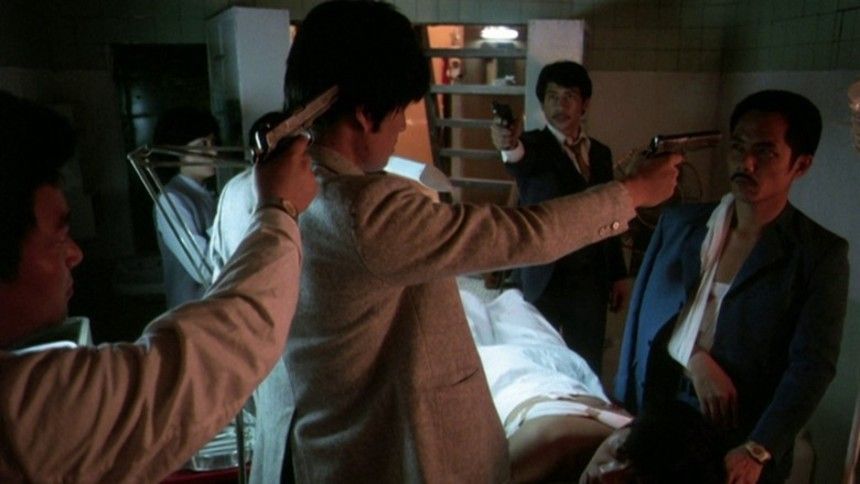Long Arm of the Law (Johnny Mak, 1984)

The intersection of the Hong Kong New Wave and the crime movie. A gang of thieves crosses the border from China into the city to pull a heist, but everything goes wrong: one guy gets caught by dogs before he can get over the razor-wire border fence, then the jewelry store they were planning to rob gets hit the day before their job (it looks like the one in City on Fire too, maybe a bad place for a jewelry store?), then, to earn some money and pass the time before they pull the heist anyway, they agree to kill a guy, but he turns out to be a police officer and suddenly every cop in the colony is after them.
As gritty and brutal and hopeless as New Wave classics like Dangerous Encounters-First Kind or The Happenings, it's a collection of terrible people caught in a hellish universe. The gang are ex-Red Army, and their poverty, both economic and spiritual, is ably contrasted with the ludicrous wealth of the city’s shopping malls (the same one from Police Story, I think) and nightclubs (one looks like the one from Golden Chicken). Almost all of them are pretty much awful, amoral and cruel, not hesitating to rob, murder or, in one case rape, anyone they come across. A couple show glimmers of humanity: a man promises to bring home riches to his wife (specifically a pair of stylish sunglasses), another chooses not to kill a bank manager who sets off an alarm, and most poignantly, one has a kind of sweet love story with a girl from home who has established herself in the city and enjoys her good life: she’s an at-home prostitute by day and a club-based prostitute by night, living the Hong Kong dream.
Shot with grimy, hand-held immediacy amid the overcrowded streets and shops of Kowloon, it’s less an anticipation of the late 80s heroic bloodshed cycle than an extension of New Wave realism into genre territory. The gang of mainland crooks would become a staple of later generic exercises, though rarely are they given as much background or personality. The cops are more or less incidental to the story, an inhuman wave of authority on their trail, though it’s a whiter group than we see in later films, where the British are almost exclusively seen in command positions. Here they are just as likely to be found in the front lines as the Chinese. Ringo Lam appears to have most inherited its legacy, especially in his On Fire films, but also with his turn toward the grotesque in Full Contact. The film begins and ends with bravura sequences snaking through maze-like slums, the first on the Mainland, uncovering a cache of weapons amid industrial ruins, while the final one is a remarkable chase through the Kowloon Walled City that may be the most desperate sequence of the 1980s.
This is the only feature Johnny Mak directed (he has a co-director imdb credit on Johnnie To’s The Bare-Footed Kid). Though he has had a long career producing and writing, his brother Michael is the more prolific director (Everlasting Love, Sex and Zen). The screenplay is by Philip Chan, who played Chow Yun-fat’s boss in Hard-Boiled. I didn’t recognize anyone in the cast except Tommy Wong, who plays an unnamed cop and looks impossibly young. Sammo Hung produced.
Added January 13, 2020:
Watching this after half a year of protest in Hong Kong and those shots of police hiding behind riot shields as they corner the doomed, desperate and, admittedly, despicable Mainlanders in the maze of the Walled City sure take on a different meaning.
